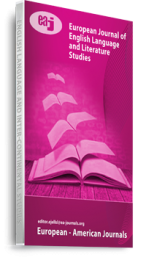Many transformations occur in the daily lives of the peoples of the Arab Gulf. Undoubtedly, such changes have left very deep influence in the varied areas of lives. Writing Gulf Sates literature in general and narrative in particular is reshaped by the daily events and concerns. The daily social and political, cultural and race/sectarian prejudice issues become the core of the Gulf writers’ concerns. In the Gulf communities, migrants come from around the world with their different cultures, languages, religions, but social conventions on the hope of finding their living. The immigrants become a part of the Gulf community and affect the culture and social conventions of the Gulf Communities, regardless of the Gulf people who travel abroad for study or tourism or searching for a better life and come back with new identity and new style of life. How do the writers express problematic of identity and the hybridity in such globalized world and cosmopolitan atmosphere? The article addresses transformations in the Gulf States identity and the rapid changes in social and political arena as portrayed by the Gulf writers in the area of narrative. The article focuses on two narratives by two Kuwaiti writers: Saud Al Sanousi’s winning novel of International Prize of Arabic Fiction (IPAF), and the Kuwait State Award: The Bamboo Stalk, 2012, and Sada Al Da’as’s Being Black, the winning novel of Kuwait State Award of Appreciation and Encouragement, 2010.
Keywords: hybridity- problematic- identity- narrative- Gulf- Racism- Black- Kuwaiti

